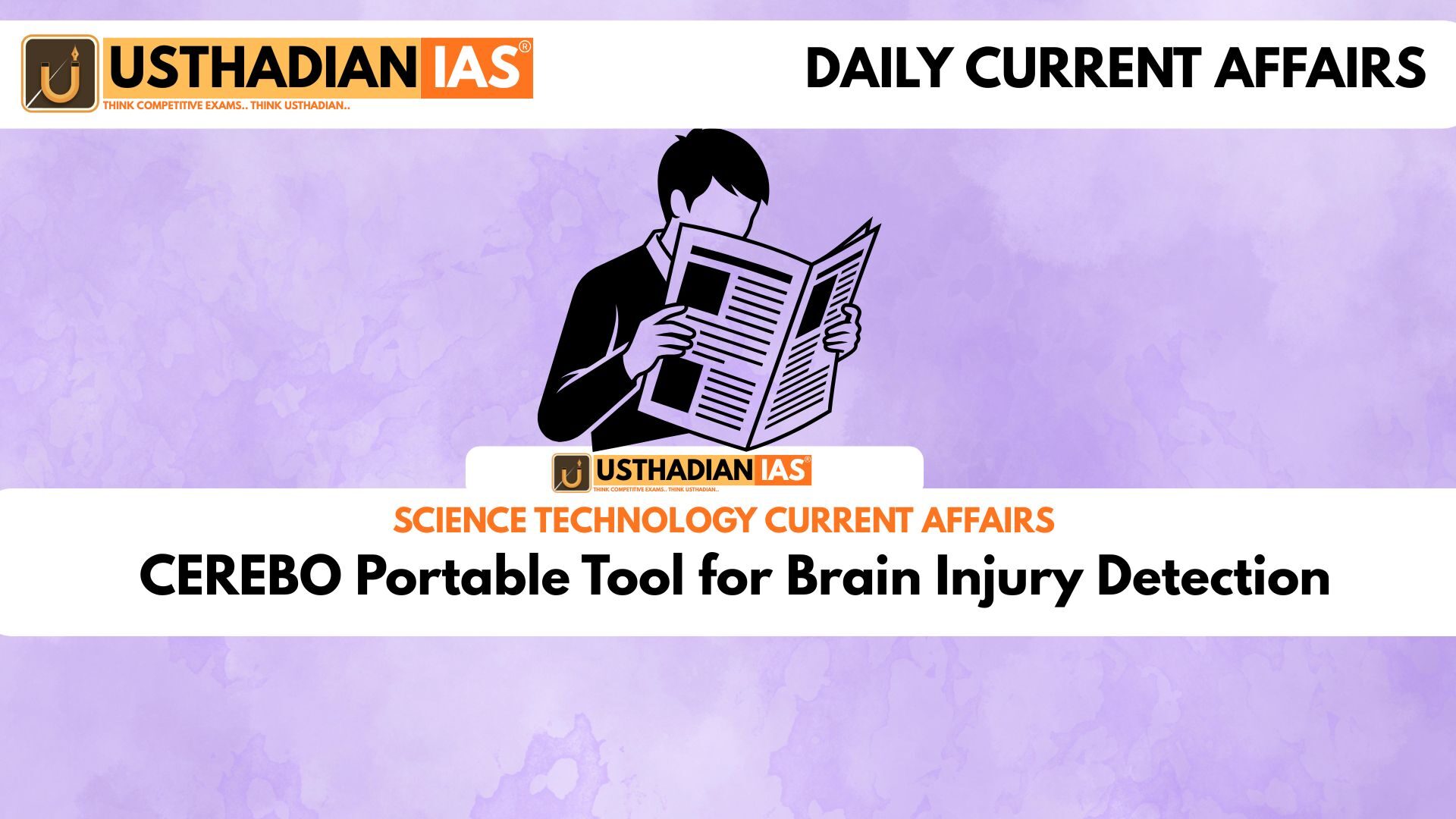Introduction
CEREBO Portable Tool for Brain Injury Detection: The Indian Council of Medical Research (ICMR) has introduced CEREBO, a breakthrough portable tool for diagnosing traumatic brain injury (TBI). This innovative device provides non-invasive and rapid detection of intracranial conditions, significantly improving emergency response.
Features of CEREBO
CEREBO uses near-infrared spectroscopy combined with machine learning algorithms to identify intracranial bleeding and edema within less than a minute. Its portable nature makes it suitable for use in ambulances, rural health centers, and emergency wards.
Static GK fact: Near-infrared spectroscopy (NIRS) is widely used in medical imaging due to its ability to penetrate tissues safely.
Safety and Usability
One of the most remarkable features of CEREBO is its safety profile. The tool is safe for infants and pregnant women, populations often restricted from conventional imaging like CT scans due to radiation risks. This expands its use in critical cases.
Collaborative Development
CEREBO was developed in collaboration with AIIMS Bhopal and NIMHANS Bengaluru, two premier institutes in the field of neuroscience and public health. This joint effort reflects India’s growing capability in indigenous medical innovation.
Static GK fact: NIMHANS Bengaluru is India’s apex center for mental health and neuroscience education and was declared an Institute of National Importance in 2012.
Role in Public Health
Traumatic brain injury is a major cause of death and disability worldwide, with India reporting a high burden of road accident–related TBIs. CEREBO’s quick diagnostic capacity can improve golden hour treatment, preventing complications and saving lives.
Static GK fact: The golden hour in medicine refers to the first 60 minutes after a traumatic injury, where prompt treatment can significantly improve survival chances.
Future Prospects
CEREBO has the potential to become a critical tool in primary healthcare and emergency medicine. Its low-cost, portable design supports wider deployment across district hospitals and rural clinics, bridging gaps in advanced diagnostic facilities.
Static GK fact: India’s rural population constitutes nearly 65% of the total population, highlighting the importance of accessible medical technologies.
Static Usthadian Current Affairs Table
CEREBO Portable Tool for Brain Injury Detection:
| Topic | Detail |
| Full Form of ICMR | Indian Council of Medical Research |
| Device Name | CEREBO |
| Purpose | Portable diagnostic tool for traumatic brain injury |
| Technology Used | Near-infrared spectroscopy and machine learning |
| Detection Time | Less than one minute |
| Safety | Suitable for infants and pregnant women |
| Collaborating Institutes | AIIMS Bhopal and NIMHANS Bengaluru |
| Key Medical Condition | Intracranial bleeding and edema |
| Public Health Impact | Faster diagnosis during golden hour of trauma |
| Future Use | Emergency care and rural healthcare deployment |








